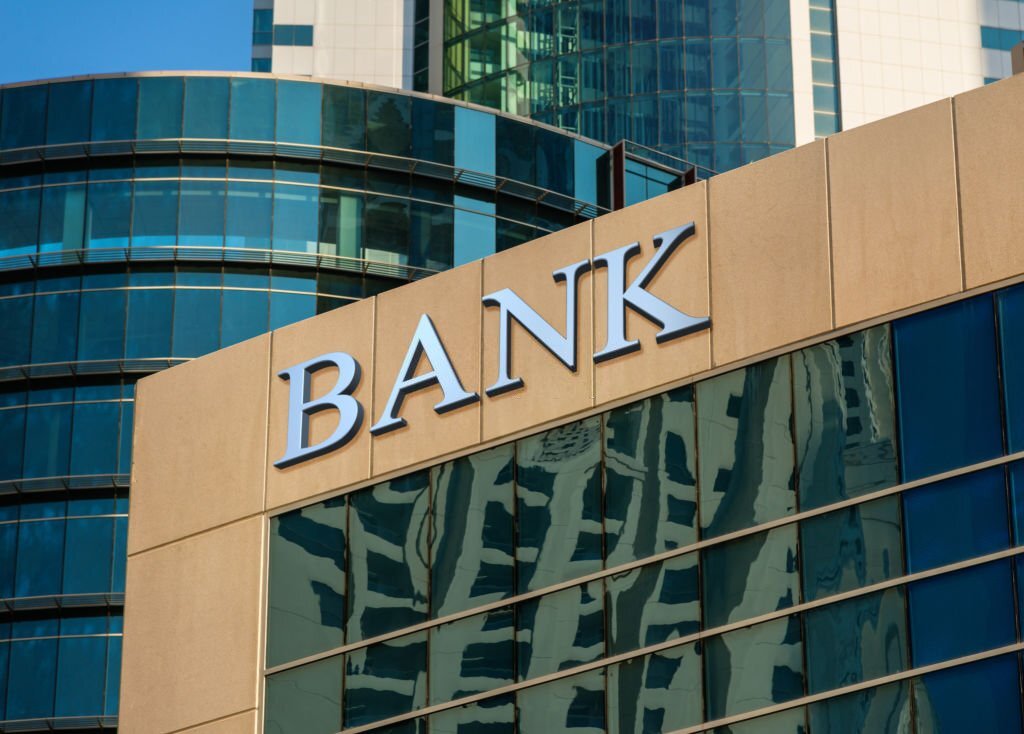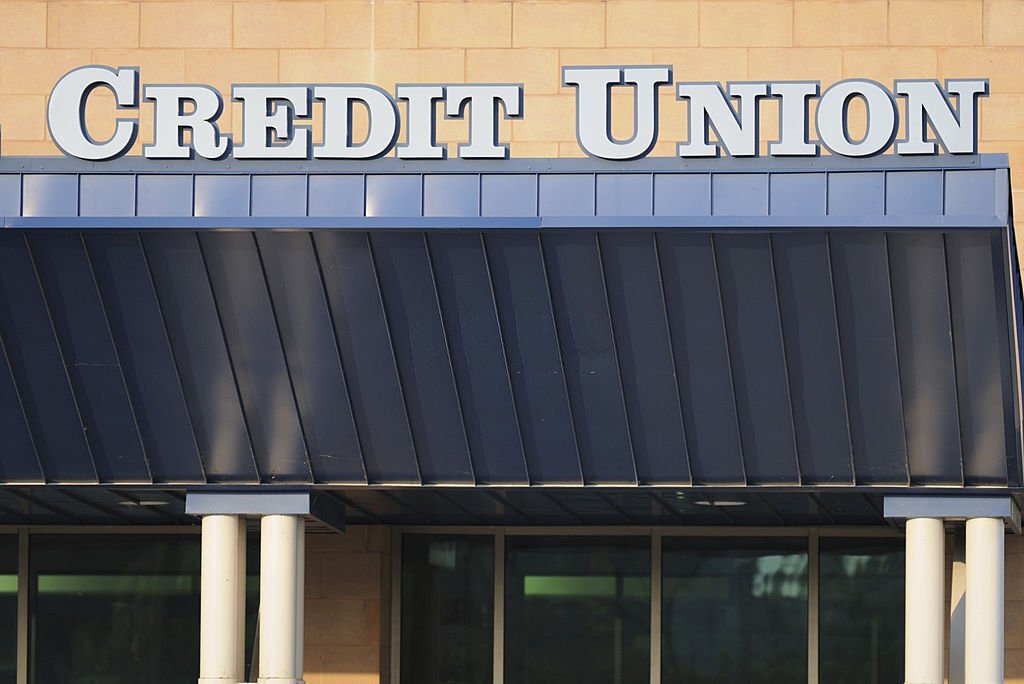You are not new to the word bank or bank account. If you don’t have one, someone around you has one, and in one way or the other, you have had something to do with a bank. Almost everything today is now digitized, even the operations of financial institutions, such that you can make transactions without even leaving your room, all thanks to technology. However, while there are numerous banks today, you must understand what financial institutions entail as it would give you an insight into many things you would encounter daily.
In addition, you don’t know the differences between the various financial institutions in Nigeria; every financial institution to an average man in Nigeria is a Bank. Numerous financial institutions have different regulations, activities, and modes of operation. You want to know more, right? All right! Let’s dive straight in!
What Is A Financial Institution?

When you hear financial institutions, what comes to mind?
You probably think of money, right? Money is the first thing you would probably think of when you hear anything financial. Well, that isn’t wrong anyways. Financial institutions basically describe any organization or body that facilitates and completes monetary transactions, such as loans, mortgages, and deposits. Financial institutions allow you to manage your earnings and develop financial footing effectively. You can make an informed choice when choosing a bank to keep your money by knowing the main features of financial institutions.
However, do you know that not all financial institutions are banks? Yes! You read right! Financial Institutions are of different categories, and they could be Bank financial institutions, non-bank financial institutions, and traditional financial institutions. Besides you must understand that when you read or hear about a financial institution, it doesn’t necessarily have to be a bank. All banks are financial institutions but not all financial institutions are banks. While you might be about to ask, non-bank and traditional financial institutions?
Well, don’t fret! You will understand the difference soon! Just keep reading.
What Is A Banking Financial Institution?

Banking financial institutions are the most well-known financial institutions today. Banks have a major role in accepting deposits and using their deposits to fund and offer loans to their customers, who will utilize them to fund education, development, business, and many more. They mostly stand as a middleman between depositors and le Dersingham, who use funds for different purposes. In addition, a bank also acts as a payment agent that offers numerous payment services, including debit cards, cheque facilities, bank drafts, credit cards, debit cards, and many more.
Another fundamental reason for depositing funds in banks is safety, interest income, and convenience. The number of excess reserves and the ratio of cash reserves held determines a bank’s ability to lend out funds. However, it is relatively easy for a bank to raise funds as certain accounts, such as demand deposits, pay no interest to the account holder. Loans, assets, and financial securities are the major investments done by banks. There is a high degree of regulation over banks because banks play an important role in financial stability and the economy of a country. The majority of the countries in the world today have established a fractional-reserve banking system, which leaves banks to compulsorily hold liquid assets equal to only a portion of their current liabilities.
In addition to other regulations intended to ensure liquidity, banks are generally subject to minimum capital requirements based on an international set of capital standards, the Basel Accords.
What Is A Non-Bank Financial Institution (Nbfi)?

Non-banking financial institutions (NBFI) are financial institutions that offer financial services and products to customers without accepting deposits. Unlike banks, NBFI does not hold a banking license and is not subject to the same banking regulations as traditional banks. They are, however, still subject to regulations from financial regulatory bodies, such as the Securities and Exchange Commission (SEC) or the Financial Industry Regulatory Authority (FINRA).
However, NBFI plays a crucial role in providing financial services to customers who cannot access traditional banking services or require specialized financial products. For example, investment banks help companies raise capital through the issuance of securities, while insurance companies provide risk management services to individuals and businesses.
They provide a diverse range of financial products and services, serving as an important complement to traditional banking services.
These institutions include companies such as
- Insurance companies,
- investment banks,
- mutual funds,
- leasing companies,
- factoring companies, and
- other financial entities that are not banks.
What Is A Traditional Financial Institution (TFI) ?

Traditional financial institutions refer to banks and other institutions offering customers various financial services and products. These institutions are regulated by government bodies, such as the Federal Reserve, and are subject to various rules and regulations to ensure their safety and stability.
Banks are the most common type of traditional financial institution. They offer a range of services to their customers, including savings and checking accounts, loans, mortgages, and credit cards. Moreover, banks also act as intermediaries between borrowers and lenders, helping to facilitate the transfer of funds between the two.
Other traditional financial institutions include
- Credit unions are member-owned cooperatives that offer financial services to their members. They typically offer similar products and services to banks but focus on serving their members’ specific needs.
- Investment firms, such as brokerage firms and investment banks.
- Susu
- Ajo or daily pay
- Goldsmith
- Co-operative thrifts etc.
These institutions provide services related to investment management, such as buying and selling securities and advice on investment strategies. They play a critical role in the economy, helping individuals and businesses manage their finances and facilitating economic growth.
What Are The Types And Sub Types Of Financial Institutions In Nigeria
You deal with financial institutions daily regardless of how you carry out your daily transactions. Are you applying for loans, depositing money, or exchanging currencies? Financial Institutions are the backbone and major part of these activities.
Below are the major types of financial institutions in Nigeria:
| S/N | FINANCIAL INSTITUTIONS |
| 1. | Bureaux-de-Change (BDCs) |
| 2. | Commercial Banks |
| 3. | Development Finance Institutions (DFI’s) |
| 4. | Discount Houses |
| 5. | Finance Companies (FCs) |
| 6. | Holding Company (HCs) |
| 7. | Merchant Banks |
| 8. | Micro-finance Banks (MFBs) |
| 9. | Non-Interest Banks |
| 10. | Primary Mortgage Banks (PMBs) |
| 11. | Payment Service Banks (PSBs) |
Table 1: Financial Institutions
The differences between these categories are not far-fetched. They are interwoven. They often depend on each other’s key activities to function appropriately. While Banking financial institutions include commercial banks whose fundamental role is to accept deposits and make loans, Non-Banking financial institutions include insurance companies, leasing companies, investment companies, and many More. Let’s take a closer look at each of these categories.
Sub-Categories Of Financial Institutions In Nigeria
Commercial Banks

Commercial banks are financial institutions where individuals and businesses can do their banking. A commercial type of institution accepts deposits, opening and checking of accounts, as well as getting financial assistance through loans. They operate by profiting from their clients, from service fees, monthly service payments of clients, loans, and fees from safe deposit boxes. Through commercial banks, individuals can safely store and track their money, loans that can greatly help businesses; online banking transactions can use automated machines using debit cards provided by a specific bank. These banks are also accessible to anyone as they have a lot of branches. However, clients may still face various risks in using a commercial bank. Some of these risks include credit risks, operational risks, and liquidity risks. Despite the risks, banks have their own risk management that will lessen the probability of the risks.
| S/N | COMMERCIAL BANKS |
| 1. | Access Bank Plc |
| 2. | Citibank Nigeria Limited |
| 3. | Ecobank Nigeria Plc |
| 4. | Fidelity Bank Plc |
| 5. | First Bank Nigeria Limited |
| 6. | First City Monument Bank Plc |
| 7. | Globus Bank Limited |
| 8. | Guaranty Trust Bank Plc |
| 9. | Heritage Banking Company Ltd |
| 10. | Keystone Bank Limited |
| 11. | Polaris Bank Plc |
| 12. | Premium Trust Bank |
| 13. | Providus Bank |
| 14. | Stanbic IBTC Bank Plc |
| 15. | Standard Chartered Bank Nigeria Ltd |
| 16. | Sterling Bank Plc |
| 17. | SunTrust Bank Nigeria Limited |
| 18. | Titan Trust Bank Ltd |
| 19. | Union Bank of Nigeria Plc |
| 20. | United Bank For Africa Plc |
| 21. | Unity Bank Plc |
| 22. | Wema Bank Plc |
| 23. | Zenith Bank Plc |
| 24. | Parallex Bank Ltd |
Merchant Banks
Merchant banks are specialized financial institutions that provide a wide range of financial services to businesses and other organizations. They are focused on providing strategic advice and funding to companies engaged in mergers and acquisitions, initial public offerings (IPOs), and other corporate finance transactions.
Merchant banks may also provide a range of other services to their clients, such as underwriting securities offerings, managing investment portfolios, and providing trade finance and treasury management services. One of the key characteristics of merchant banks is their focus on long-term relationships with their clients. However, unlike traditional investment banks, which may be focused on short-term transactions and generating fees, merchant banks typically take a longer-term view of their client relationships. They may provide ongoing support and advice to help clients achieve their strategic objectives.
Moreover, merchant banks can be an important strategic advice and funding source for businesses and other organizations engaged in complex corporate finance transactions. Their focus on long-term relationships and flexible, innovative solutions can help clients achieve their strategic objectives and succeed in today’s rapidly evolving business environment.
| S/N | MERCHANT BANKS |
| 1. | Coronation Merchant Bank |
| 2. | FBN Merchant Bank |
| 3. | FSDH Merchant Bank |
| 4. | Greenwich Merchant Bank |
| 5. | Nova Merchant Bank |
| 6. | Rand Merchant Bank |
Bureaux-De-Change (BDCS)

Bureaux de change are financial institutions that provide foreign currency exchange services. They are usually in airports, tourist areas, and financial districts. The fundamental role is to convert one currency from one foreign country to another. In general, Bureaux de Change offers foreign currency exchange services at competitive rates, and they typically charge a fee for their services. The exchange rates offered by Bureaux de Change can fluctuate throughout the day and vary depending on the exchanged currencies.
Besides, they are subject to various regulations and requirements, including anti-money laundering laws and customer identification requirements. They must also obtain appropriate licenses and adhere to local laws and regulations. Moreover, in some countries, such as the United Kingdom, bureaux de change are regulated by the Financial Conduct Authority (FCA). The FCA sets out rules and requirements that Bureaux de Change must follow to operate legally and comply with local regulations. They are important in facilitating international travel and commerce by providing foreign currency exchange services to individuals and businesses worldwide.
| S/N | BUREAUX-DE-CHANGE (BDCS) |
| 1. | 19th BDC Ltd |
| 2. | 2020 Wise BDC Ltd |
| 3. | 313 Bureau De Change Limited |
| 4. | 6JS BDC Ltd |
| 5. | 8-Twenty Four Bureau de Change Limited |
| 6. | A & C Bureau De Change |
| 7. | A & S Bureau de Change |
| 8. | A & U Buraeu de Change |
| 9. | A AND B BUREAU DE CHANGE LIMITED |
| 10. | A and C Bureau De Change ltd |
| 11. | A Three BDC Ltd |
| 12. | A. A. Boss Bureau de Change Limited |
| 13. | A. Maikore BDC Ltd |
| 14. | 1069 BDC Ltd |
| 15. | A. Three BDC Ltd |
| 16. | A. W. Y. Bureau de Change Ltd |
| 17. | A.A. Lukoro Bureau de Change Limited |
| 18. | A.A. Silla Bureau de Chage |
| 19. | A.A.Rano BDC Ltd |
| 20. | A.B.A. BDC Limited |
Development Finance Institutions
Development Finance Institutions (DFIs) are specialized financial institutions that play a crucial role in promoting economic development and poverty reduction in developing countries. DFIs are typically established or supported by governments, international organizations, or public and private sector entities. Their primary objective is to provide financial and technical assistance to support sustainable development projects and initiatives.
DFIs provide long-term capital and financial resources to support a wide range of development projects, such as infrastructure development, renewable energy projects, agriculture, small and medium-sized enterprises (SMEs), and social sectors like education and healthcare. They often invest in sectors that may be considered high-risk or commercially unattractive to traditional financial institutions. DFIs also help mitigate investment risks in developing countries by providing loans, equity investments, and guarantees to attract private sector investments. They may also offer technical assistance and capacity-building programs to enhance the viability and success of projects.
DFIs play a critical role in bridging the financing gap for development projects in emerging economies, where access to affordable capital and technical expertise may be limited. Moreover, they act as catalysts for economic growth, job creation, and poverty reduction by facilitating investments in key sectors and promoting sustainable and inclusive development.
| S/N | DEVELOPMENT FINANCE INSTITUTIONS (DFI’S) |
| 1. | Bank of Agriculture (BOA) |
| 2. | BANK OF INDUSTRY |
| 3. | Development Bank of Nigeria Plc |
| 4. | Federal Mortgage Bank Of Nigeria |
| 5. | Nigeria Export Import Bank |
| 6. | The Infrastructure Bank |
Discount HousesFinance Companies (FCs)

Discount houses are specialized financial institutions that provide short-term loans and other services to banks and other financial institutions. They typically operate in countries with developed financial markets like the United Kingdom, Nigeria, and South Africa.
Discount houses engage in two main activities, which include;
- Provision of short-term loans to banks and other financial institutions, and
- Purchase of government securities, such as treasury bills, on behalf of their clients.
The short-term loans provided by discount houses are typically unsecured and have maturities ranging from overnight to a few months. Banks and other financial institutions often use these loans to meet short-term funding needs or manage liquidity.
One of the key advantages of working with a discount house is that it can provide access to short-term funding and liquidity management services at a lower cost than other sources of funding, such as interbank lending or commercial paper issuance. This can be particularly valuable for smaller financial institutions that may not have access to these markets on their own.
| S/N | DISCOUNT HOUSES |
| 1. | Associated Discount House Ltd. |
| 2. | Consolidated Discount Limited |
| 3. | Express Discount Limited |
| 4. | First Securities Discount House Ltd |
| 5. | Kakawa Discount House Ltd |
Finance Companies (FCs)

Finance companies are specialized financial institutions that provide a wide range of financial products and services to individuals, businesses, and other organizations. They may be engaged in various activities, such as lending, leasing, factoring, insurance, and investment management.
Finance companies may be classified into two main types: consumer finance companies and commercial finance companies.
- Consumer Finance Companies:
These companies provide individuals with a range of financial products and services, such as personal loans, credit cards, installment financing, and mortgages. They may also offer insurance products like auto or homeowners insurance and other financial services like financial planning or investment management.
- Commercial finance companies:
On the other hand, commercial companies provide financial products and services to businesses and other organizations. This may include loans, leasing and financing for equipment or real estate, factoring services, and other financing and financial support.
In addition to these two main categories, finance companies may be further classified based on their products and services, such as asset-based lending, equipment financing, or invoice factoring.
Finance companies may also differ in ownership structure, with some being publicly traded companies while others are privately owned or owned by larger financial institutions.
In addition, finance companies play an important role in providing access to capital and financial services for individuals, businesses, and other organizations. They can help fuel economic growth by financing new ventures, supporting investment in equipment and infrastructure, and promoting consumer spending and economic activity.
| S/N | FINANCE COMPANIES (FCS) |
| 1. | AAA FINANCE & INVESTMENT COMPANY LIMITED |
| 2. | ADDOSSER FINANCE LIMITED |
| 3. | AIQ CAPITAL FINANCE COMPANY LIMITED |
| 4. | ALC FINANCE COMPANY LTD |
| 5. | ALLIANZBRIDGE FINANCE COMPANY LIMITED |
| 6. | AMS FINANCE & MANAGEMENT COMPANY LIMITED |
| 7. | AQUILA LEASING LIMITED |
| 8. | ARKERS FINANCE COMPANY LIMITED |
| 9. | BANCORP FINANCE LIMITED |
| 10. | BERKSHIRE FINANCE COMPANY LIMITED |
| 11. | BRANCH INTERNATIONAL FINANCIAL SERVICES LTD |
| 12. | C & I LEASING PLC |
| 13. | CANDOURCREST FINANCE LIMITED |
| 14. | CAPITALFIELD FINANCIAL MANAGEMENT LIMITED |
| 15. | CAPRI-MARTINS FINANCE LIMITED |
| 16. | CARBON FINANCE AND INVESTMENT LIMITED |
| 17. | CASH-LINK LEASING PLC |
| 18. | CELOX FINANCE & INVESTMENT LIMITED |
| 19. | CEVIANT FINANCE LIMITED |
| 20. | CFS Financial Services Limited |
Holding Companies

Holding companies, also known as parent companies or holding corporations, are corporations that own a controlling interest in one or more other companies, which are referred to as subsidiaries. The primary purpose of a holding company is to own and control the subsidiary companies rather than to conduct operations or generate revenue on its own. Holding companies may be structured in various ways, depending on the needs and objectives of the owners. In some cases, a holding company may be created to consolidate the ownership and management of a group of related companies. In contrast, in other cases, it may be established to acquire and manage diverse businesses and investments. The main advantage of a holding company structure is that it can provide a high degree of control and flexibility for the owners while also allowing for a separation of liability between the parent company and its subsidiaries. This can be particularly useful when the subsidiaries operate in different industries or geographic regions, as it can help simplify management and decision-making processes.
Holding companies may also provide tax advantages and other financial benefits, such as pooling resources and sharing risks across multiple subsidiaries. They may also be able to access capital markets more easily than individual subsidiaries since the parent company’s overall financial strength and stability can help to improve creditworthiness and lower borrowing costs. Also, they can be a useful tool for managing and controlling a diverse portfolio of businesses and investments while providing benefits such as liability protection, tax advantages, and access to capital.
| S/N | HOLDING COMPANY (HCS) |
| 1. | ACCESS HOLDINGS PLC |
| 2. | FBN HOLDINGS PLC |
| 3. | FCMB GROUP PLC |
| 4. | FSDH HOLDING COMPANY |
| 5. | GTB HOLD CO |
| 6. | STANBIC IBTC HOLDINGS PLC |
Table 8: Holding Company (HCs)
3. Micro-Finance Banks (MFBS)

Microfinance banks are financial institutions that provide financial services to individuals and small businesses, particularly those in underserved or rural communities. The primary focus of microfinance banks is to provide access to credit, savings, and other financial services to people who may not have access to traditional banking services. In addition, they offer small loans, known as micro-loans, to individuals and small businesses that may not have access to credit through traditional banks. They also provide savings accounts and other financial services, such as insurance, remittance, and financial education and training.
One of the key features of microfinance banks is their focus on financial inclusion and social impact. By providing access to credit and other financial services to underserved communities, microfinance banks can help to promote economic growth and reduce poverty. Furthermore, microfinance banks play an important role in promoting financial inclusion and supporting economic development in underserved communities. By providing access to credit, savings, and other financial services, they can help individuals and small businesses to grow and succeed and contribute to broader social and economic development goals.
| S/N | MICRO-FINANCE BANKS (MFBS) |
| 1. | AACB Microfinance Bank Limited |
| 2. | AB Microfinance Bank Limited |
| 3. | ABC Microfinance Bank Limited |
| 4. | Abestone Microfinance Bank |
| 5. | Abia SME Microfinance Bank |
| 6. | Abia State University Microfinance Bank Limited |
| 7. | Abigi Microfinance Bank Limited |
| 8. | Above Only Microfinance Bank |
| 9. | Abubakar Tafawa Balewa University (ATBU) Microfinance Bank |
| 10. | Abucoop Microfinance Bank Limited |
| 11. | Abulesoro Microfinance Bank |
| 12. | Accion Microfinance Bank Limited |
| 13. | ACE Microfinance Bank Limited |
| 14. | Achina Microfinance Bank Limited |
| 15. | Active Point Microfinance Bank Limited |
| 16. | ADA Microfinance Bank Limited |
| 17. | Adazi-Enu Microfinance Bank Limited |
| 18. | Adazi-Nnukwu Microfinance Bank Limited |
| 19. | Addosser Microfinance Bank Limited |
| 20. | Adeyemi College Staff Microfinance Bank |
Non- Interest Bank

Non-interest banks, also known as Islamic banks, are financial institutions that operate in accordance with Islamic principles and do not charge or pay interest on loans and deposits. Instead, they use a system of profit sharing, equity financing, and asset-based financing to provide financial services to their customers.
Under Islamic principles, the charging and paying of interest is prohibited, as it is viewed as a form of exploitation that creates an unequal distribution of wealth. Instead, non-interest banks use a variety of alternative financing techniques, such as profit sharing, where the bank shares in the profits or losses of a customer’s business, and asset-based financing, where the bank provides financing based on the value of a specific asset, such as real estate or equipment.
Non-interest banks may also provide other financial services, such as savings accounts, investment accounts, and insurance products, that are structured in accordance with Islamic principles. For instance, savings accounts may be structured as profit-sharing accounts, where the bank shares in the profits earned from investments made with the funds.
| S/N | NON-INTEREST BANKS |
| 1. | JAIZ BANK PLC |
| 2. | LOTUS BANK LTD |
| 3. | TAJ |
Primary Mortgage Banks
Primary Mortgage Banks (PMBs) are financial institutions that specialize in providing mortgage loans to individuals and businesses to purchase or refinish real estate. PMBs are typically regulated by national banking authorities and subject to certain legal and regulatory requirements.
PMBs provide financing to individuals and businesses that may not be able to obtain traditional mortgage financing from commercial banks or other financial institutions. PMBs may offer a range of mortgage products, including fixed-rate and adjustable-rate mortgages, as well as other specialized mortgage products, such as construction loans, renovation loans, and reverse mortgages.
PMBs may also work closely with government housing agencies to support affordable housing initiatives and promote home ownership in their communities. For example, PMBs may partner with government agencies to provide subsidized mortgage loans or participate in government-backed mortgage programs.
In addition to mortgage lending, PMBs may provide other financial services, such as savings and checking accounts, and offer other financial products like insurance and investment services.
Overall, PMBs play an important role in promoting home ownership and providing access to mortgage financing for individuals and businesses. By providing a range of mortgage products and services, PMBs can help to support economic growth and development and contribute to broader social and economic goals.
| S/N | PRIMARY MORTGAGE BANKS (PMBS) |
| 1. | ABBEY MORTGAGE BANK |
| 2. | AG HOMES |
| 3. | AKWA SAVINGS |
| 4. | ASO SAVINGS & LOANS |
| 5. | BRENT (SKYFIELD) SAVINGS |
| 6. | CENTAGE SAVINGS & LOANS |
| 7. | CITY CODE |
| 8. | COOP SAVINGS & LOANS |
| 9. | DELTA MORTGAGE FINANCE |
| 10. | FBN MORTGAGES |
| 11. | FHA HOMES LTD |
| 12. | FIRST GENERATION HOMES |
| 13. | GATEWAY SAVINGS |
| 14. | GLOBAL TRUST |
| 15. | HAGGAI MORTGAGE BANK |
| 16. | HOME-BASE MORTGAGE |
| 17. | IMPERIAL HOMES |
| 18. | INFINITY TRUST |
| 19. | JIGAWA SAVINGS & LOANS |
| 20. | JUBILEE-LIFE MORTGAGE BANK |
Payment Service Banks (PSBS)
Payment Service Banks (PSBs) provide payment and basic financial services to individuals and small businesses. This category of financial institutions was introduced in Nigeria in 2018 by the Central Bank of Nigeria to promote financial inclusion and increase access to financial services in underserved areas.
Moreover, PCBs are licensed by the Central Bank of Nigeria and are subject to certain legal and regulatory requirements. However, they are not allowed to engage in lending activities but can offer services such as deposits, withdrawals, remittances, bill payments, and mobile banking services.
Of all the financial institution categories, one distinct feature of the Payment service banks is their effort and focus on leveraging technology to provide low-cost, convenient, and accessible financial services to individuals and businesses. Moreover, they partner with mobile network operators, technology companies, and other financial institutions to deliver their services through digital channels, such as mobile apps, USSD codes, and online platforms.
| S/N | PAYMENT SERVICE BANKS (PSBS) |
| 1. | 9 PSB Ltd |
| 2. | Hope PSB Ltd |
| 3. | Moneymaster PSB Ltd |
Table 12: Payment Service Banks (PSBs)
What Are The Regulatory Agencies Of Financial Institutions In Nigeria?
Have you ever considered why so many people trust the bank and other financial bodies so much that they put all their income, investment, and savings in the banks or other financial institutions?
Do you agree that it is not just because of how well they have been able to present themselves to the general public?
Before the establishment and global acceptance of financial institutions, there were other methods of carrying out our daily transactions which were trusted and effective. However, as things began to grow and change, Nigeria, a developing country, needed to adopt some methods of operations in some industries into its system. When it comes to money, as Nigerians, or let’s say as humans, we naturally tend to be protective over our properties, especially money. We want to ensure that where we put our money is safe and secure.
Over the years, there has been growth in the financial industry. For fair operations, the Nigerian government has established a number of Regulatory bodies to oversee the affairs of the financial sector. Today, we rest assured that our properties, money, and investments in the care of these financial institutions are secure because of the regulatory bodies that ensure stability, integrity, and smooth operations.
So here you ask, what are Regulatory bodies? Governments or other organizations establish regulatory bodies to oversee the functioning and fairness of financial markets and the firms that engage in financial activity. These bodies establish and enforce rules, regulations, and guidelines to safeguard your interests and that of others, promote transparency, and maintain the overall health of the financial system.
In Nigeria, the primary regulatory bodies for financial institutions include;
1. Central Bank Of Nigeria (CBN)
The Central Bank of Nigeria is the highest regulatory authority overseeing and supervising banks and non-bank financial institutions. The Central Bank of Nigeria was established in 1958 and commenced operations on 1st July 1959. They are responsible for promoting monetary stability and a sound financial system while acting as a banker and financial advisor to the federal government. The CBN also acts as the banker of last resort to the banks. Besides, they encourage the growth and development of financial institutions.
2. The Nigerian Deposit Insurance Corporation (NDIC)
The Nigeria Deposit Insurance Corporation is an independent agency established by the Nigerian government in 1988 that complements the regulatory and supervisory role of the CBN. NDIC only reports to the Federal Ministry of Finance. They started operations in 1989 and were established to provide deposit insurance and related services for banks in order to promote confidence in the banking industry. Besides, they can scrutinize the records and affairs of insured bhttps://ndic.gov.ng/anks and other deposit-taking financial institutions. Moreover, all licensed banks are mandated to pay 15/16 of 1% of their total deposit liabilities as insurance premiums to the NDIC.
3. The Federal Mortgage Bank of Nigeria (FMBN)
The Federal Mortgage Bank of Nigeria (FMBN) is a government-owned financial institution in Nigeria established in 1956, whose primary objective is to promote and provide affordable housing finance for Nigerian workers. They operate as a secondary mortgage institution, providing funds to primary mortgage institutions, such as commercial and mortgage banks, to facilitate the disbursement of mortgage loans to individuals and organizations. After adopting the National Housing Policy in 1990, the FMBN was empowered to license and regulate primary mortgage institutions in Nigeria and act as the apex regulatory body for the mortgage finance industry. The financing function of the Federal Mortgage Bank of Nigeria was carved out and transferred to the Federal Mortgage Finance, while the FMBN retains its regulatory role. Unlike NDIC, the FMBN is under the control of the Central Bank.
4. National Insurance Commission (NIC)
The National Insurance Commission is another financial regulatory body established by the National Insurance Commission Act 1997. They are responsible for the supervision, regulation, and development of the insurance industry in Nigeria, regulates and supervises the insurance industry in Nigeria, ensuring compliance with relevant laws and protecting the interests of policyholders. They are responsible for issuing licenses to Insurance companies, brokers, and other insurance intermediaries to operate in Nigeria. Besides, they also register and approve various insurance products and policies and oversee the activities of insurance companies to ensure compliance with regulations, solvency requirements, and ethical standards. Some of their primary responsibilities include policy formation, consumer protection, and market development.
In addition, NIC plays a crucial role in maintaining stability, trust, and confidence in the Nigerian insurance industry.
5. Securities and Exchange Commission (SEC)
The Securities and Exchange Commission of Nigeria (SEC Nigeria), established by the Investments and Securities Act of 2007, is the regulatory authority responsible for overseeing and regulating the Nigerian capital market. SEC supervises all Nigerian capital market entities, including securities exchanges, brokers, issuing houses, registrars, trustees, and investment advisers. It ensures compliance with regulations, market integrity, and investor protection.
However, it also plays a crucial role in promoting the development and growth of the Nigerian capital market. It formulates policies, regulations, and initiatives to attract investments, enhance market transparency, and foster investor confidence. SEC Nigeria strives to create a conducive capital formation and economic development environment. Besides, it is crucial in promoting transparency, investor protection, and market integrity in the Nigerian capital market investor protection, registration and licensing, and market surveillance and enforcement.
What Are The Functions Of Financial Institutions In Nigeria?
There are quite a number of functions carried out by financial institutions in Nigeria. These functions contribute to the efficient allocation of funds, economic growth, risk management, and the overall functioning of the financial system.
Some of these functions are as follows;
- Standing as Intermediation: Financial institutions act as intermediaries between those with excess funds (savers/investors) and those needing funds (borrowers). They facilitate the transfer of funds from savers to borrowers through activities such as lending, investing, and providing financial services.
- Deposit-taking: They accept deposits from individuals, businesses, and other entities, providing a safe place for them to store their money. This includes commercial banks, savings banks, credit unions, and other deposit-taking institutions.
- Lending and Credit: They also provide loans and credit to individuals and businesses. They evaluate creditworthiness, assess risks, and offer various types of loans, such as personal loans, mortgages, business loans, and lines of credit. This enables individuals and businesses to finance their investments, purchases, and operations.
- Payment Services: Here, they facilitate the movement of funds by providing payment services. This includes issuing debit and credit cards, processing electronic transactions, facilitating wire transfers, and offering online and mobile banking platforms.
- Investment and Asset Management: This is another amazing function carried out by financial institutions. Financial institutions, such as asset management firms and mutual funds, help individuals and institutions invest their funds in a diversified portfolio of assets, such as stocks, bonds, real estate, and commodities. They provide investment advice, manage portfolios, and aim to generate returns for investors.
- Risk Management and Insurance: Financial institutions offer insurance products to protect individuals and businesses from various risks, including life, health, property, and liability risks. Insurance companies assess risks, calculate premiums, and provide financial compensation in the event of covered losses.
- Financial Advice and Planning: Financial institutions provide financial advice and planning services to individuals and businesses. This includes financial planning, retirement planning, investment advice, tax planning, and estate planning.
- Capital Market Operations: They participate in capital market activities, such as underwriting securities (e.g., stocks and bonds), facilitating initial public offerings (IPOs), and providing brokerage services for buying and selling financial instruments.
What Are The Challenges Facing Financial Institutions In Nigeria?
While there are different challenges encountered by the different categories of Financial institutions in Nigeria, below are some challenges facing financial institutions in Nigeria at large.
- Bad Loans: This is one of the major problems faced by financial institutions in Nigeria, where some measures are put in place to ensure borrowers’ payback; there are still so many cases of borrowers not being able to pay back loans at the appointed time. Bad Loans affect financial institutions’ smooth running because they tend to hold up capital that would have been used for further development and investment.
- Illiteracy: Illiteracy is another major challenge faced by financial institutions in Nigeria because of the inability of some customers to communicate effectively. Illiterate customers are often unable to read or write, which are some of the fundamental things to do for effective operation.
- Government Policies: Government regulations or policies also affect financial institutions in the sense that the government might make a policy to correct a certain issue in the economy, but this policy might, in turn, hinder the profit-making potentials of financial transactions.
- Low Profits: It is mostly believed that financial institutions are constantly making money, whereas many Nigerian financial institutions still battle with low profits and are yet to make enough returns on investment and equity. This has led to a massive laying off workers in many financial institutions as they hope to cut down costs to maximize profits. Moreover, it has also led to the inability of financial institutions to keep up with the continuous servicing of their recurrent expenditure.
- Poor Customer Services: Customer service is a major core of any successful organization. However, Nigerian financial institutions are not up to date with standard modern customer service delivery. These poor service deliveries (both digital and manual) have constituted a major setback in the customer base of such institutions, as most customers require top-quality services, especially as it concerns money.
Challenges Facing Banks In Nigeria?
Banks in Nigeria face several challenges that affect their operations and growth. Here are some common challenges facing banks in Nigeria:
- Volatility in the economy: Nigeria’s economy is prone to volatility because of things like changes in the price of oil, currency exchange rates, inflation, and governmental policies. Managing the quality of their assets, profitability, and loan portfolios can be difficult for banks during unstable economic times.
- Regulatory Environment: Banks operate in a highly regulated environment in Nigeria. Compliance with regulatory requirements, including capital adequacy ratios, risk management frameworks, reporting standards, and anti-money laundering measures, can be demanding for banks. Keeping up with regulatory changes and maintaining compliance can be a challenge.
- Cybersecurity and Fraud Risks: Banks face increasing cybersecurity threats and fraud risks in the digital era. Hackers and cybercriminals continuously develop sophisticated techniques to breach banking systems, steal customer data, and carry out financial fraud. Banks must invest in robust cybersecurity measures, employee training, and fraud detection systems to safeguard customer information and financial transactions.
- Access to Finance: In Nigeria, a significant portion of the population remains unbanked or underbanked, limiting access to financial services. Banks face the challenge of expanding their reach to underserved populations and promoting financial inclusion. This requires innovative approaches, technology adoption, and collaboration with other stakeholders.
- Infrastructure and Technology: Inadequate physical infrastructure, such as power supply and telecommunications, pose challenges for banks in delivering efficient and reliable services. Additionally, banks need to invest in modern technology infrastructure, digital banking platforms, and cybersecurity systems to meet customer expectations and remain competitive in the digital age.
History Of Financial Institutions In Nigeria
The Nigerian banking system is one of the most significant sectors contributing to the growth of Nigeria’s economy. However, over the years, it has grown and morphed into a better system and structure. The history of the banking system in Nigeria can be traced back to the colonial era when the colonial government set up colonial banks where it sought to meet its commercial objectives. The British West Africa and African Banking Corporation were created in 1892 as the foremost banking institution in Nigeria. After some time, they merged and grew to the First Bank of Nigeria you know today. Through the merger of the National Bank of South Africa and the Anglo-Egyptian Bank, Barclays Bank came into being in 1925. The British and French Bank for Commerce and Industry commenced business in 1948 and later developed into the present-day United Bank for Africa.
Nigeria’s first domestic Bank, known as an industrial and commercial bank, was established in 1929 and collapsed the following year, 1930. After its collapse, the bank was displaced in the subsequent year by Mercantile Bank. Moreover, after the Industrial and Commercial Bank collapsed, the African Continental Bank was established in 1949. Meanwhile, the African Continental Bank served as Nigeria’s only preservable indigenous bank after the collapse of the first indigenous bank. In 1947, the Nigerian Farmers and commercial bank was established
Overview of the history of the banking industry in Nigeria.
- Pre-Independence Era: Banking in Nigeria began with the establishment of the African Banking Corporation (ABC) in Lagos in 1892. Over the years, more banks were established, including the British Bank for West Africa (now First Bank of Nigeria, as stated above) in 1894 and the Barclays Bank (now Union Bank) in 1917. These banks primarily served colonial interests.
- Post-Independence and Indigenization: Following Nigeria’s independence in 1960, there was a push for indigenous participation in the banking sector. The Nigerian government introduced policies to encourage establishing indigenous banks and gradually increased foreign banks’ minimum equity holding requirement. This led to the emergence of indigenous banks such as the National Bank of Nigeria (now Unity Bank), Union Bank, and United Bank for Africa (UBA).
- Banking Reforms in the 1980s: There were significant changes and reforms in the Nigerian banking industry in 1980. The Structural Adjustment Program (SAP) implemented in 1986 aimed to liberalize the economy and enhance efficiency. The financial sector witnessed deregulation, the entry of new banks, and the introduction of universal banking licenses. This period also saw the consolidation and expansion of existing banks.
- Consolidation and Recapitalization: In 2004, the Central Bank of Nigeria (CBN) introduced the consolidation and recapitalization policy to strengthen the banking sector and improve its stability. Banks were required to increase their minimum capital base from 2 billion Naira to 25 billion Naira. This led to mergers, acquisitions, and the emergence of larger and stronger banks.
- Recapitalization Policy of 2005: In 2005, the CBN introduced another recapitalization policy, raising the minimum capital requirement for banks to 25 billion Naira. This policy aimed to enhance the capital base of banks, improve corporate governance, and foster financial stability.
- Regulatory Reforms and Risk Management: The Nigerian banking industry has witnessed several regulatory reforms to enhance transparency, risk management, and corporate governance. The CBN introduced guidelines on corporate governance, risk management frameworks, and anti-money laundering measures to ensure the stability and integrity of the banking sector.
- Technological Advancements and Digital Banking: The Nigerian banking industry has embraced technological advancements, leading to the growth of digital banking. Banks have adopted electronic banking platforms, mobile banking, and innovative financial technology solutions to enhance customer experience, increase financial inclusion, and improve operational efficiency.
Today, the Nigerian banking industry is a vibrant and competitive sector with a mix of local and international banks. It plays a crucial role in the country’s economic development, providing financial intermediation, credit facilities, and support for businesses and individuals. The industry continues to evolve, adapting to changing customer needs, technological advancements, and regulatory requirements.
Wrapping Up
Financial institutions play a vital role in our economy, providing essential financial services such as banking, lending, investment, and risk management. These institutions serve as intermediaries between savers and borrowers, facilitating economic growth and stability. With their expertise and extensive resources, financial institutions enable individuals, businesses, and governments to manage their finances, access capital, and navigate the complexities of the financial world. However, it is essential to ensure effective regulation and oversight to maintain the integrity and stability of these institutions, safeguarding the interests of both customers and the overall economy.



